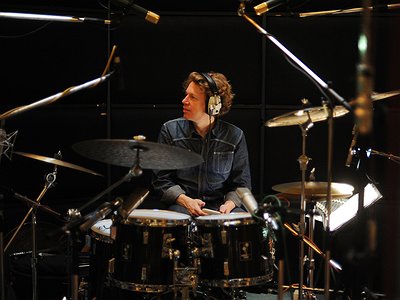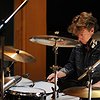Part 2
With more and more musicians creating than ever and more, what does this mean for you as an artist in terms of originality? What are some of the areas where you currently see the greatest potential for originality and who are some of the artists and communities that you find inspiring in this regard?
I’m not sure about your statement that there are more musicians “creating” more than before. This might be true in terms of general physical output but I’m not sure that there is more “creative” and “original” music being produced now than before. A lot more people have the time and techniques to explore their creative side but I don’t see that its producing many John Coltranes every year.
What constitutes a good live performance in your opinion and what’s your approach to performing on stage? How do an improvisation and the recording of this improvisation compare?
As I’m sure you’ll agree this multi-question depends on so many variables I couldn’t possibly cover in a simple answer. As a performer you instinctively know inside whether you managed to perform your music, or someone else’s music in the right way, with the right intention. What makes up a good performance depends very much on the priorities of the artist/performer. In music the driving force behind each artist’s performance can be from the extreme ends of the spectrum, encompassing both artistic and sometimes dare I say financial considerations.
Listening is also an active, rather than just a passive process. How do you see the role of the listener in the musical communication process?
Someone that’s listening to the music is THE vital part of the whole chain. As musicians we are also listeners, absorbing the levels and intricacies within the structure of the music. Listening is vital to any part of life not just music, the way one can interpret someone’s point of view from a conversation does not come entirely from words alone, and that is the way we can approach listening to music.
How do you see the relationship between music and other forms of art – painting, video art and cinema most importantly - and in how far, do you feel, does music relate to other senses than hearing alone?
Music is instantaneous in the way it reaches the listener. There is nothing to see in terms of the senses its appealing to so it can directly reach peoples imagination to a potentially deep level immediately, in an instant.
Reaching audiences usually involves reaching out to the press and possibly working with a PR company. What's your perspective on the promo system? In which way do music journalism and PR companies change the way music is perceived by the public?
I don’t know the true answer to the second part of your question, but of course it goes without saying that promotion is a very important part of the process of getting your music out into the wider world.
Do you have a musical vision that you haven't been able to realise for technical or financial reasons – or an idea of what music itself could be beyond its current form?
I’m lucky to be in a position where I make music with many diverse and brilliant artists. As an individual you can only do so much, but with the right people to work and collaborate with you can go to places you never knew were possible.
More information on Martin France can be found on his website.






